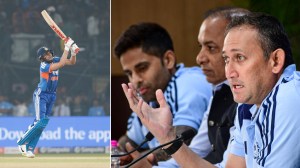Spread the word
The question is not what classical language means,but what it does for the literature thus chosen
The question is not what classical language means,but what it does for the literature thus chosen
Malayalam has fought its way into the classical language club,once restricted to Sanskrit and Tamil,then Telugu and Kannada. This is a category created and rewarded by the government,and great prestige attaches to the status. It isnt entirely clear what classical means in these contexts,though,apart from a whiff of high culture. In the West,classical refers to ancient Greek and Roman literary achievement. The values these works prize are a product of those cultures,emphasising order,clarity,reason and humanism. In India,for our purposes,a Sahitya Akademi expert committee ruled that to count as classical,a literature and language have to appeal to antiquity and distinctiveness. They have to be old wellsprings,though not necessarily running streams Sanskrit and classical Tamil have ceased to be used in modern speech or writing.
Does Malayalam qualify? Arguably no more than Bengali or Marathi. Its a hybrid of Sanskrit and Tamil,mulched together a few centuries ago. But by getting itself listed as a classical language,it will get Rs 100 crore of Central assistance to promote the language and literature,Malayalam chairs in Central universities,etc. Thats reason enough to want in.
The real question is not about what merits as classical,or the cloudiness of the category its the dearth of scholarship in pre-colonial literatures,in most Indian languages whether Oriya or Assamese,Brajbhasha or Prakrit. Theres very little editing,translating,commentary or critical work on valuable literary texts in India,and what there was in the West has also shrunk.
If this jostling for classical status can bring a measure of scholarly attention to this heritage,it is entirely worthwhile.
- 01
- 02
- 03
- 04
- 05































